11 Artworks From Artnet’s Gallery Network That Our Experts Are Loving This Week
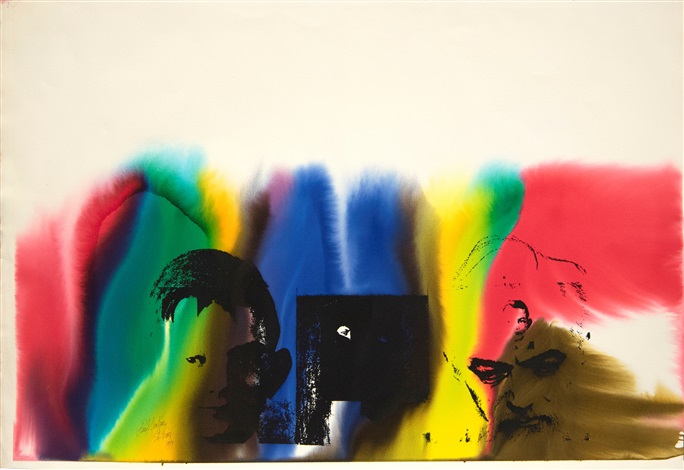

Artnet Gallery Network

Every week, we explore the thousands of galleries on the Artnet Gallery Network to highlight the spaces and artworks inspiring us right now. Take a look at our latest picks below.
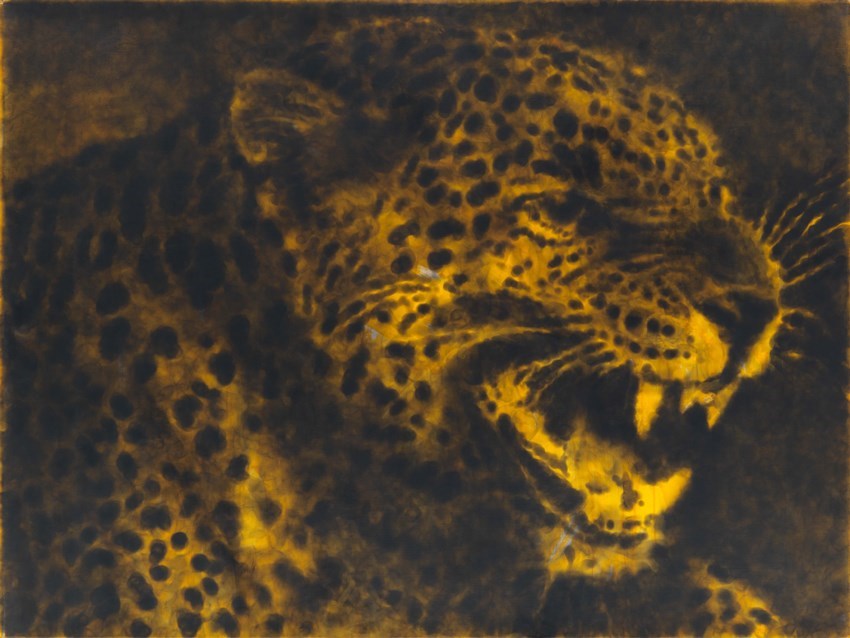
Jiri Georg Dokoupil, Gelber Leopard (2018). Courtesy of Galerie Haas AG Zürich.
Czech-German painter and graphic artist Jiri Georg Dokoupil is a founding member of Mülheimer Freiheit and Junge Wilde, two German artist groups that reacted against predominating styles of Minimalism and conceptual art during the 1980s, in ways mirroring the Neo-Expressionists in the United States. Throughout his career, Dokoupil has strategically refused to align himself with a particular style, instead experimenting with numerous approaches that attempt to eliminate personal approaches — recently including a series images of color-saturated paintings of leopards as seen in Gelber Leopard above.
—Alexandra Schott
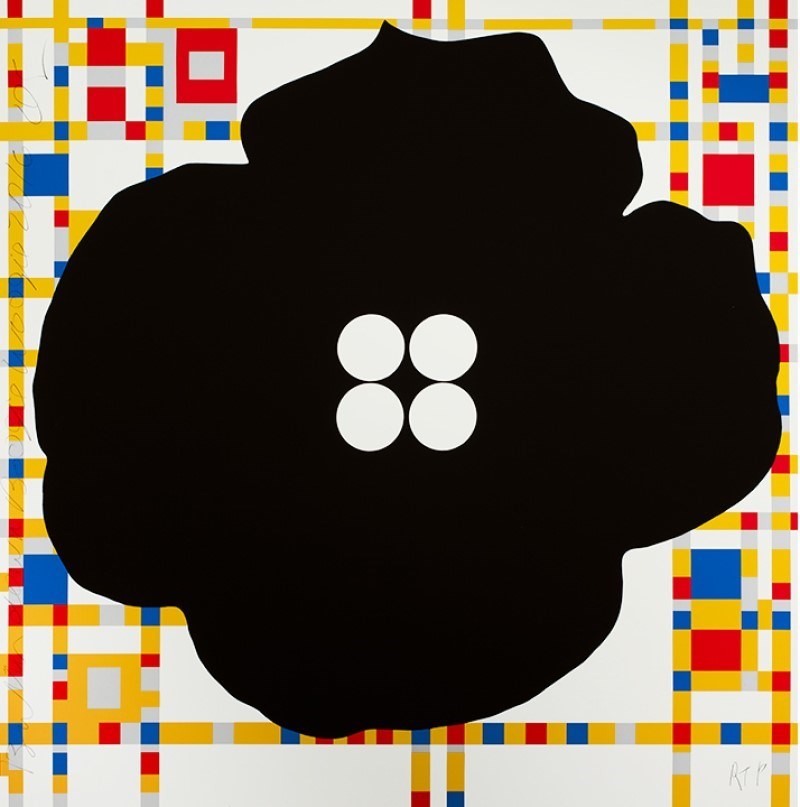
Donald Sultan, Button Down Boogie Woogie (2016). Courtesy of Maune Contemporary.
American artist Donald K. Sultan rose to prominence in the 1980s with his large-scale still life paintings that incorporated typically industrial materials like vinyl tiles, tar, and spackle. Here, Sultan recreates Piet Modrian’s famous mid-century masterpiece Broadway Boogie Woogie, but imposes a large Pop-style black flower at its center. In a lighthearted detail, the flower’s pistil appears like the eyelets of a shirt button, perhaps a wink to the city’s suited professional class.
—Julia Yook
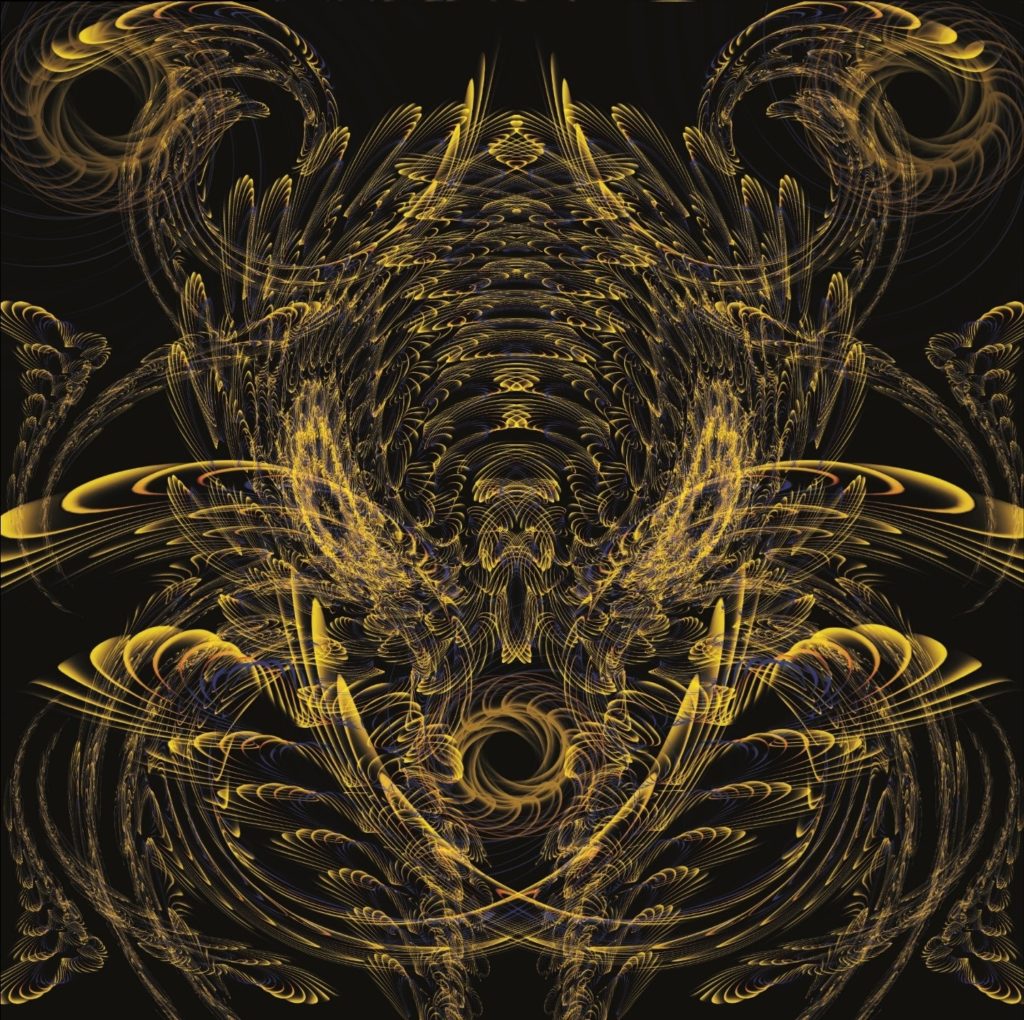
MyLinh Mac, Fraction 3 (2016). Courtesy of En Foco Gallery.
This complex and beautiful work from MyLihn Mac’s “Fractions” series is created from a single line that is bent and manipulated on Photoshop into multiple shapes and layers. The final image is a mesmerizing that calls to mind everything from Gothic architecture to Futurist sculpture.
—Karin Petit
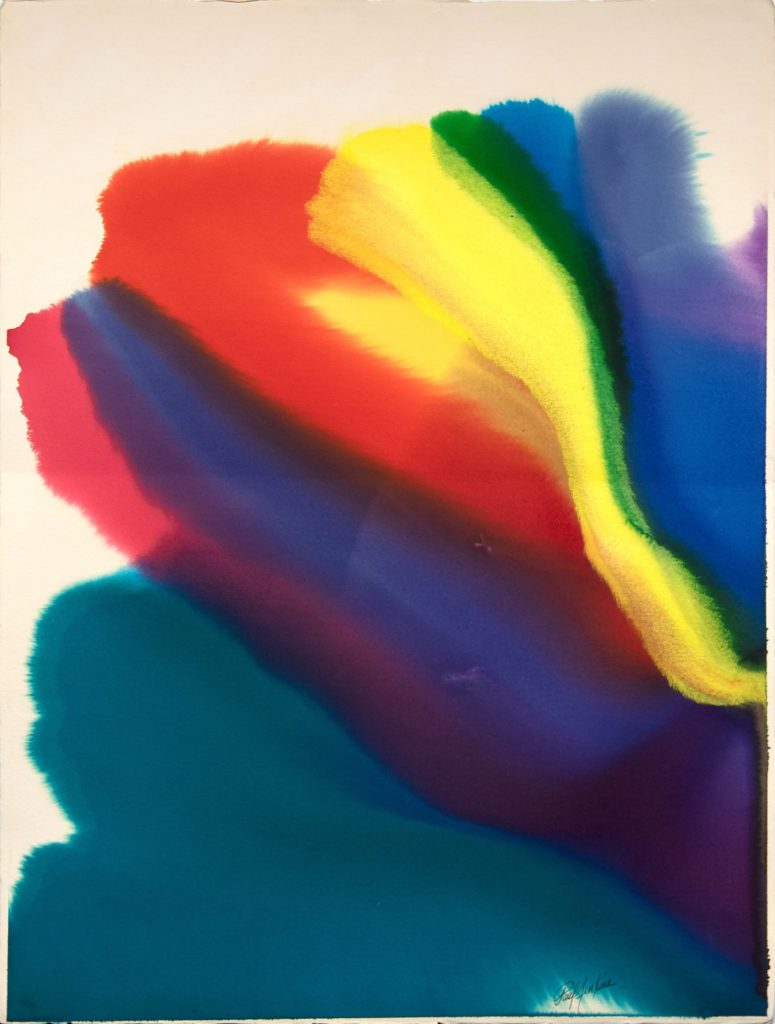
Paul Jenkins, Phenomena D.H. Lawrence Gala (1980). Courtesy of Heather James Fine Art.
Paul Jenkins is recognized for his unconventional approach to painting. The artist developed his distinctive style through the process of controlled paint pouring and canvas manipulation. In this work, Jenkins employs a translucent and dynamic color palette to create a powerful painting that speaks to the relationship between color and motion.
— Nan Stewart
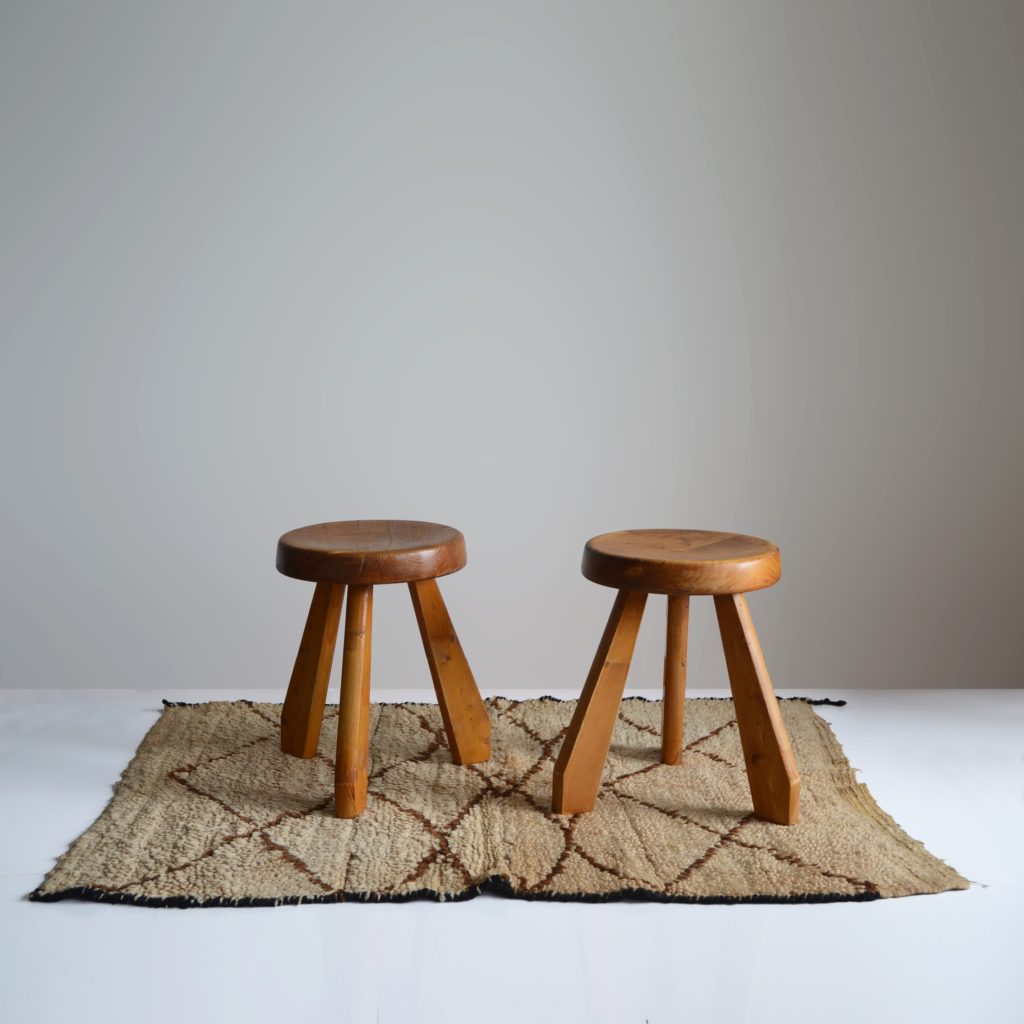
Charlotte Perriand, Pair of three-legged stools (circa 1968). Courtesy of P! GALERIE.
The French architect and designer Charlotte Perriand began her interior design studies at the age of only 18 and initially worked for many years in the studio of Le Corbusier and Pierre Jeanneret, with whom she later founded her own artists’ association. Although she mainly worked with steel, she also worked with natural materials such as wood or textiles. Many of her pieces of furniture were intended for architectural projects rather than serial production, as can be clearly seen in this pair of chairs. The wood with its distinct grain gives the form an organic and haptic character and refers to the aesthetic impressions she got during her long stay in Japan and Vietnam.
—Miriam Minak
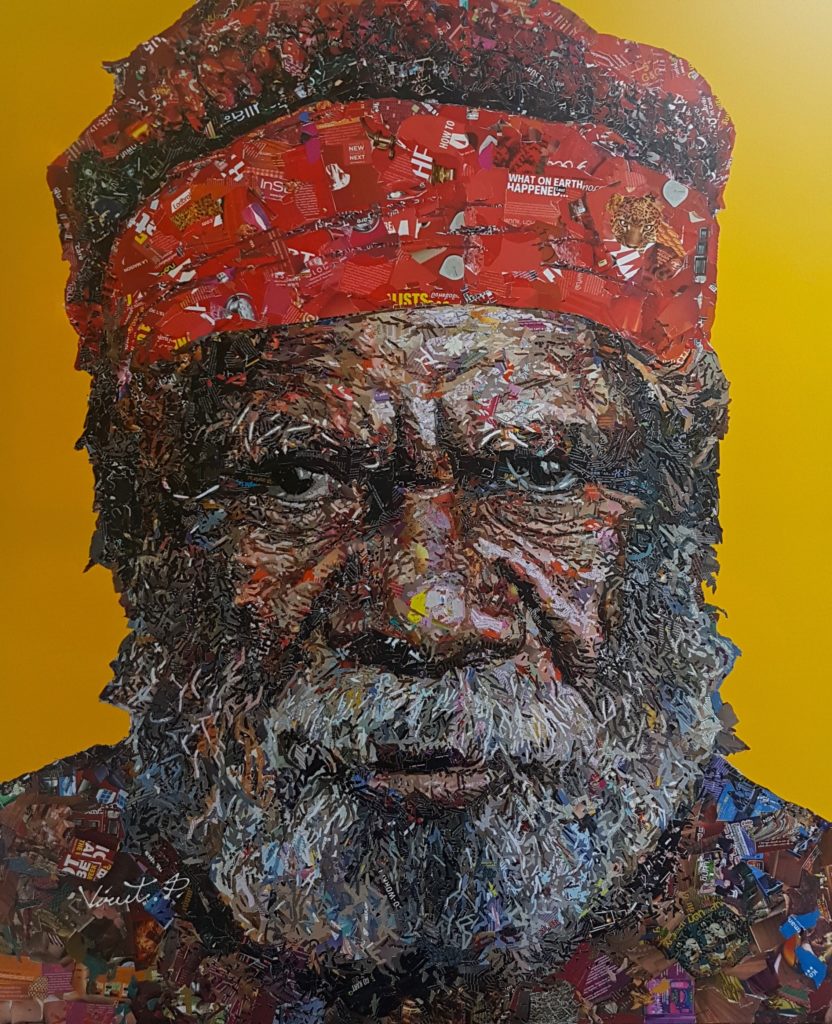 Virut Panchabuse, Aboriginal (2019). Courtesy of MLA Gallery.
Virut Panchabuse, Aboriginal (2019). Courtesy of MLA Gallery.
Thai artist Virut Panchabuse uses collage and oil to create this vibrant painterly portrait of an Aboriginal man. Looking closely at the artwork you can see the intricate paper cuttings he uses to create his “brushstrokes.”
—Qadira Farrington
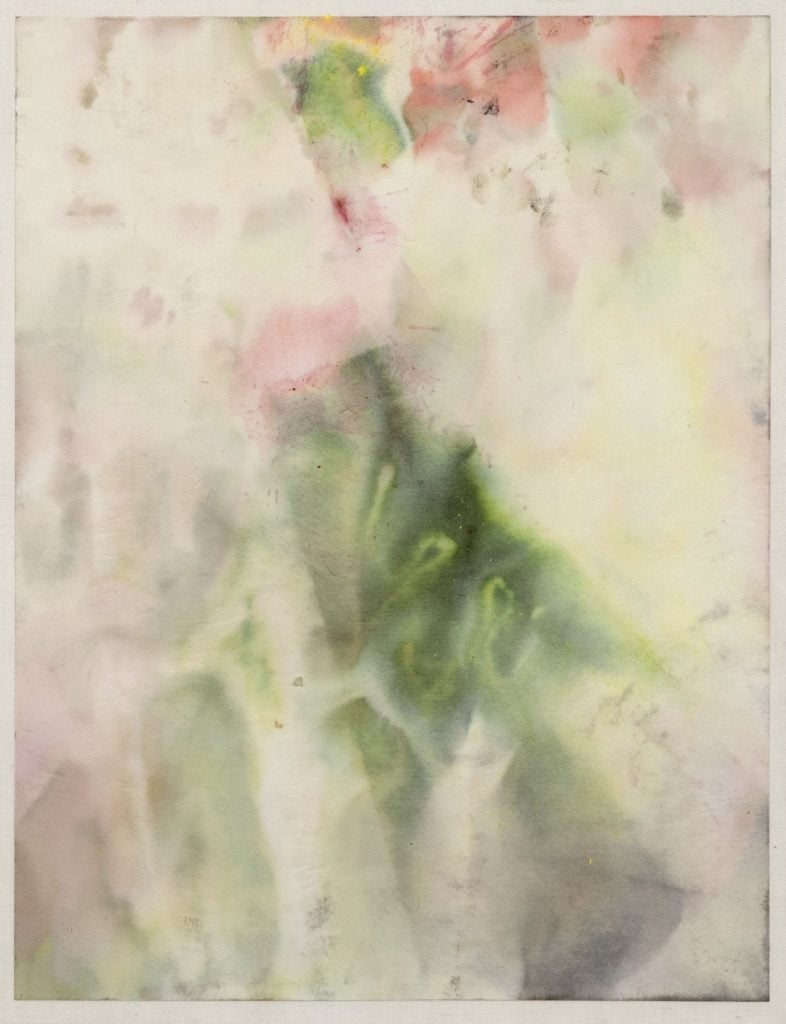
Sam Gilliam, Light Shade (1967). Courtesy of Caviar20.
Having experienced Sam Gilliam’s massive Double Merge at Dia: Beacon one begins to wonder how you could experience this powerful body of work more intimately. This print, while far from the oceanic sublimity that are his installations, draws out the mesmerizing cosmic colors and depth that can be found in even small sections of any of his works.
—Santiago Garcia Cano
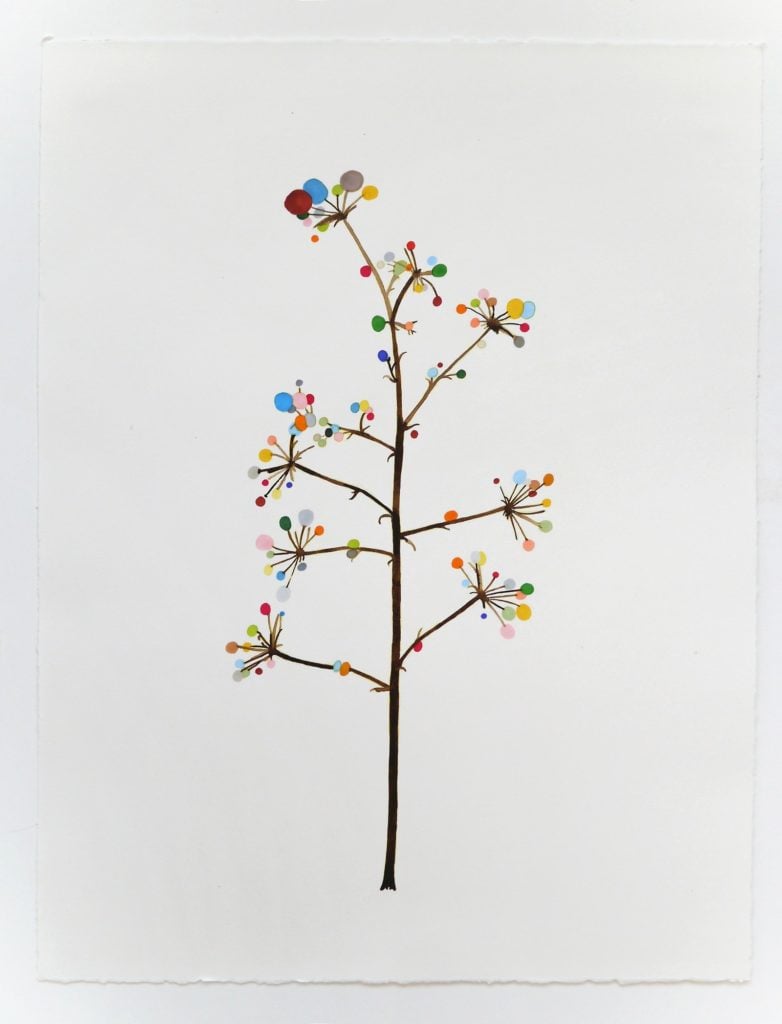
Blaise Drummond, Aralia 3 (2019). Courtesy of Lyndsey Ingram.
This sepia ink and marker drawing by Blaise Drummond gives hope that even in the depths of winter, you never know where some unexpected color might be getting ready to blossom.
—Sara Carson
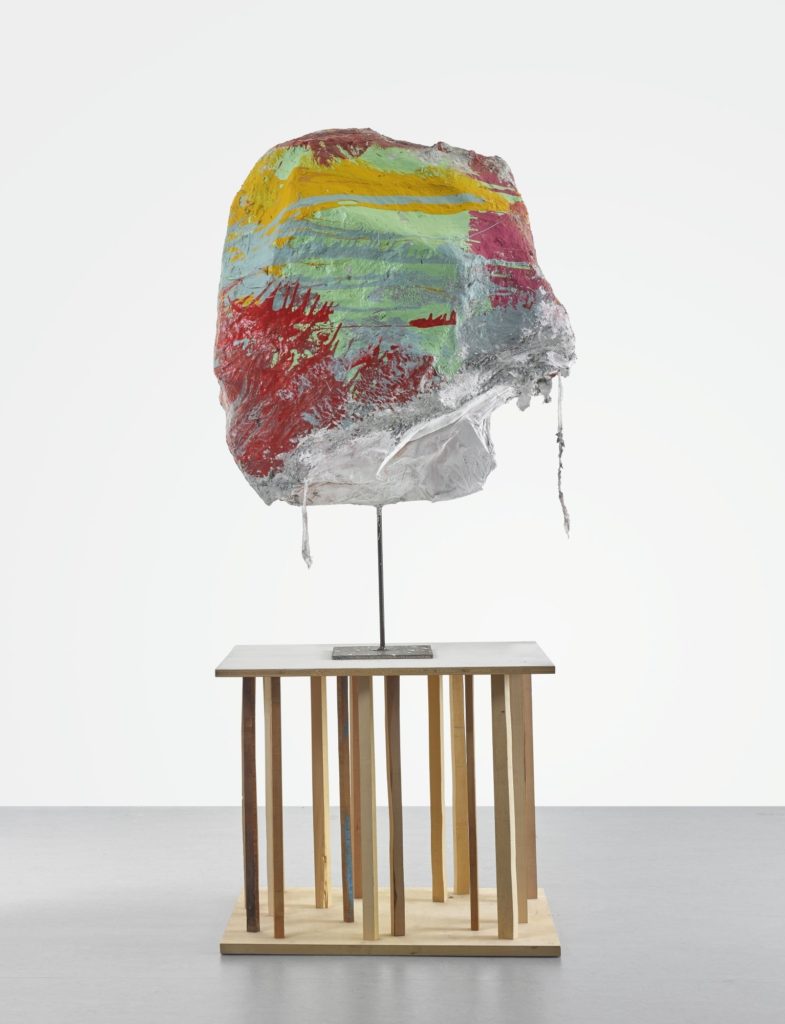
Franz West, Untitled (2010). Courtesy of Galerie Seroussi.
Franz West is known for his colorful sculptures, most notably for his “adaptives” which are meant to be both worn and played with. Unlike those sculptures, this work is placed on a base. Last year at West’s retrospective at the Tate Modern, I learned that the pedestals on considered parts of the artworks and were designed by the artist — this work being an excellent example.
—Tara Wyant
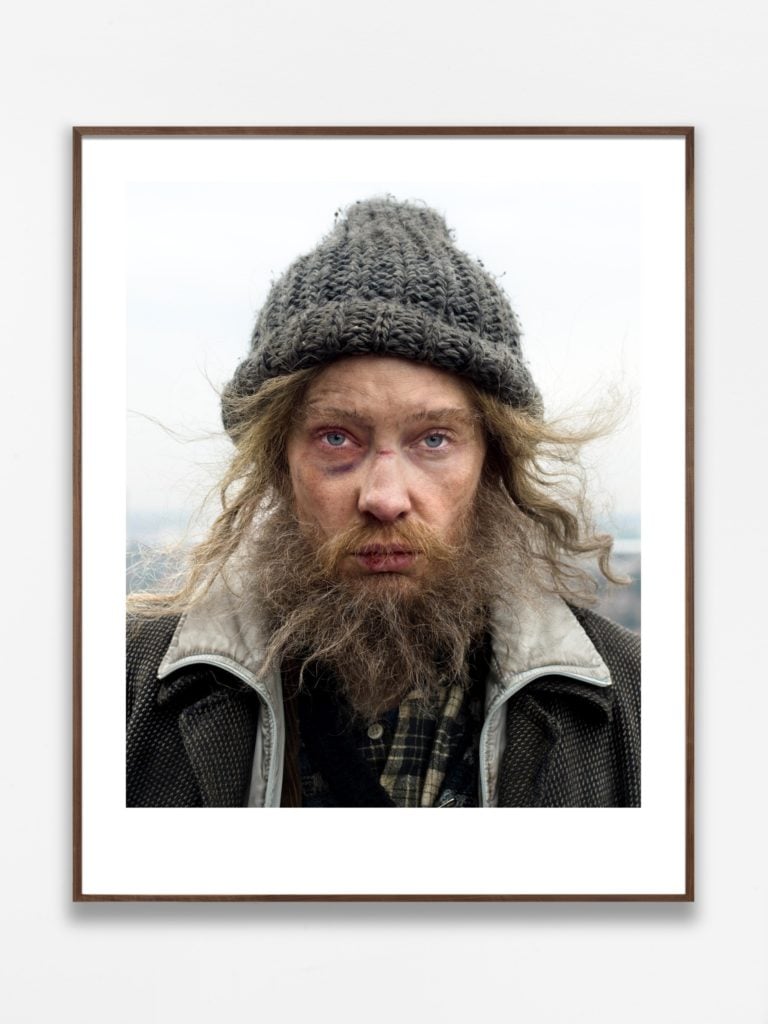
Julian Rosefeldt, Manifesto (Karl Marx) (2015–2017). Courtesy of König Galerie.
In the film series Manifesto, Julian Rosefeldt shows the actress Cate Blanchett in the guise of thirteen different characters, each a version of an artist famed for their artistic manifestos. In this still she is captured in the role of a homeless man who delivers the monologues of Karl Marx.
—Tobias Molitor
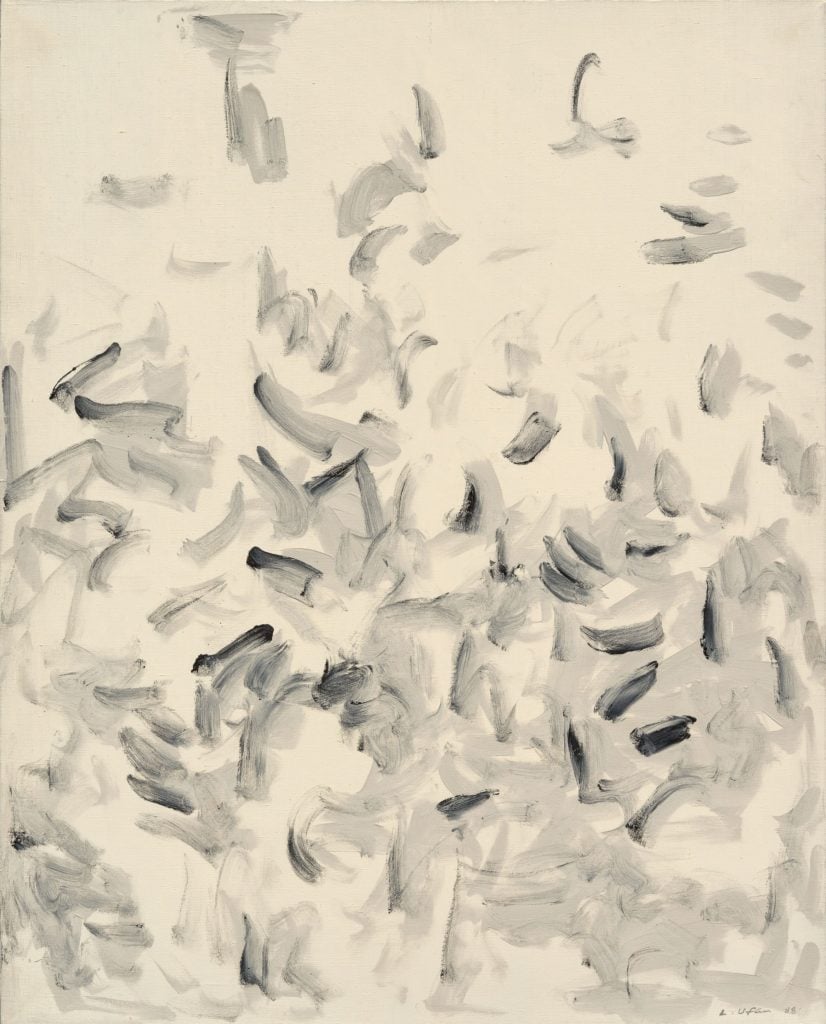
Lee Ufan, With Winds (1988). Courtesy of Kukje Gallery.
Known for his minimalist renderings and philosophical contemplation through paintings and sculptures, Lee Ufan here carries out his feathery brushstrokes with the level of simplicity and strength that once again seamlessly marry the Eastern appreciation of material with modern European phenomenology. The painting creates a poetic backdrop with metaphorical winds that invite a meditative means of viewing. Lee contributed to ‘Korean Monotone Art,’ the first artistic movement in 20th century Korea to be promoted in Japan, with his distinguished artistic approach of de-westernization and de-modernization and his works are widely celebrated in both Japan and Korea.
—Yi Zhang